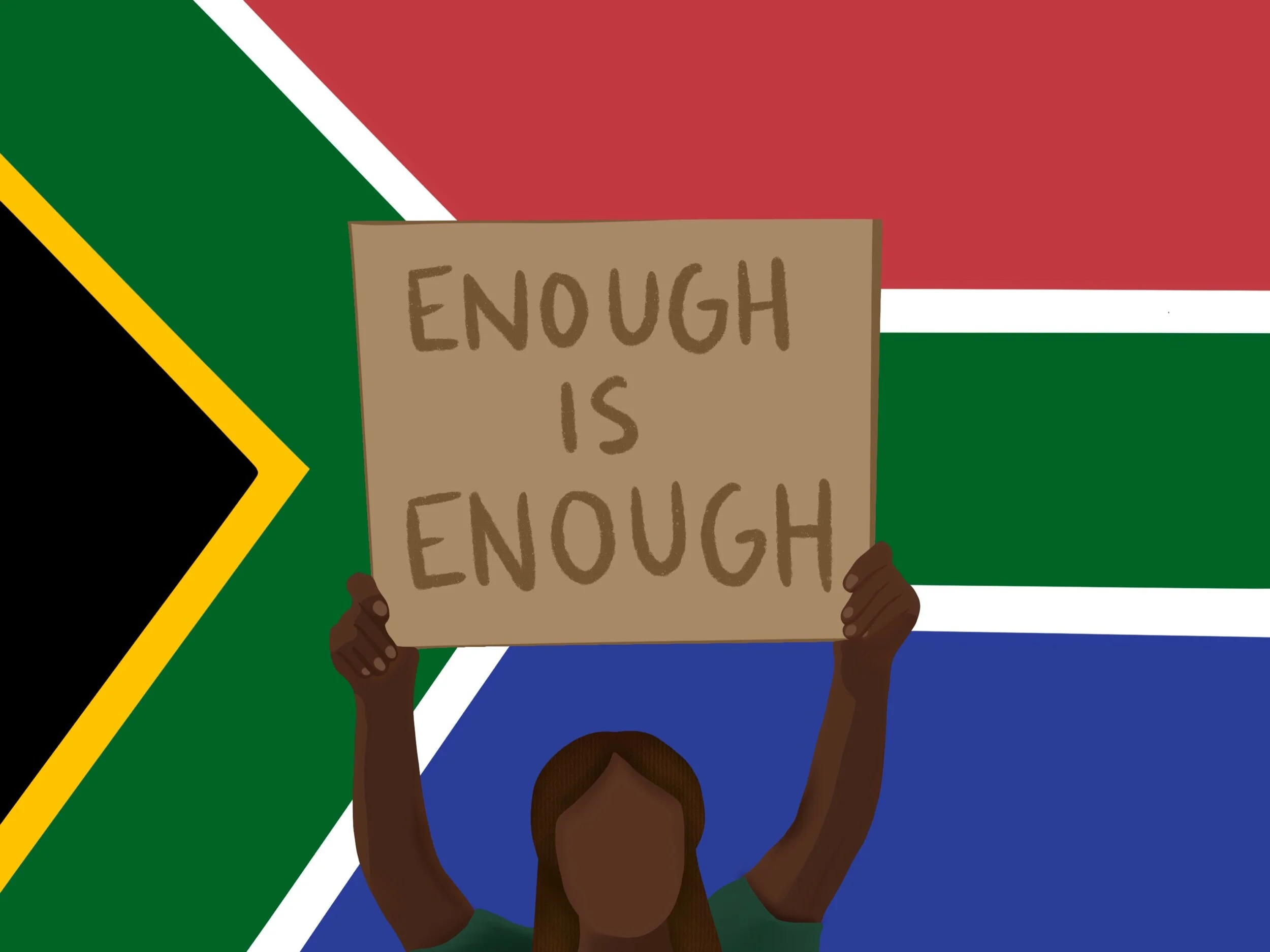Gender-Based Violence: South Africa’s Ongoing Epidemic
TW: References to rape, sexual assault and violence against women
South Africa has often been viewed by Westerners as one of the more accessible parts of the African continent: a gateway to African lifestyle and culture for holidaymakers, businessmen and prospective residents alike. Its colonial history, multi-ethnic makeup and picture-perfect climate and terrain, has moulded an international beacon in a largely homogeneous mass of land. It straddles the line between the Africa we assume from stereotypes and the Africa we want to know better, drawn to its cultural richness that dates back to the beginnings of civilisation itself.
Despite its overall progress in the post-apartheid era, the Rainbow Nation continues to be plagued by an age-old problem: gender-based violence. The recent murders of heavily pregnant Tshegofatsu Pule, Altecia Kortjie and seven-year-old daughter Reynecia, Naledi Phangindawo, Sanele Mfaba and others have shone a stark spotlight on the prevalence of femicide and violence against women in the country, exacerbated by the ongoing COVID-19 pandemic which has left many women more vulnerable than ever as ordinary freedoms, services and lifelines have been put on pause.
This post was last updated on 1st September 2020
Overview
2017/2018 crime statistics published by the police show that on average, a woman is killed every three hours in South Africa
According to the World Health Organization, the rate at which women are murdered by their partners is five times higher in South Africa than the global average
In addition to the alarming rate of femicide, the country continues to lead global statistics on number of rape incidents per 100,000 of the population—though the Medical Research Council estimates that only 1 in 9 are reported.
Speaking in a nationwide address on 17th June 2020, President Cyril Ramaphosa revealed that 21 women and children had been killed in recent weeks—likely an undercount—calling the alarming trend of violence against women “another pandemic that is raging in our country”.
Of course, violence against women is not unique to South Africa, but the incident rate is much higher than most countries for several reasons: the glaring economic disparity (South Africa has a score of 63.0 on the Gini index, indicating extreme wealth inequality) that forces women into vulnerable positions, such as homelessness, abusive households or sex work; a cultural mistreatment of women, where women are perceived to have a lower social value than boys and men; and patriarchal ideas of dominance over women and sexual entitlement.
Furthermore, South Africa is home to the world’s biggest HIV epidemic—over a fifth of the population are HIV-positive—and women are disproportionately affected: in 2017 it was estimated that 26% of South Africa’s women were living with HIV, compared to 15% of men. It’s believed that the prevalence of gender-based violence in South Africa, as well as the aforementioned income inequality, are linked to why women are one of the most vulnerable groups for contracting HIV. According to the Department of Women, Children and People with Disability, young women who were victims of intimate partner violence (IPV) were 50% more likely to test positive for HIV over a period of 2 years than those who hadn’t.
It’s also worth noting…
While the media and research focuses heavily on violence within male-female relationships, abusive relationships exist within the LGBTQ+ community also. The Triangle Project published a report in 2016 that takes a rare, in-depth look at violence in queer female relationships—read for a unique perspective on intimate partner violence in South Africa and beyond.
How you can help
The good news is that the pandemic has forced the issue of gender-based violence back into the spotlight, and the pressure is now on the government to create legislation that protects South African women. You can help from afar by signing petitions, donating to charities supporting women’s rights in South Africa, and volunteering with your local organisations.
Further resources
References & Further Reading
World Health Organisation
CGTN
Safer Spaces
IOL
World Health Organization
One World
BBC
Sonke Gender Justice
Soul City Institute for Social Justice
KPMG
Avert
Department of Social Development, Republic of South Africa
Intimate femicide-suicide in South Africa: a cross-sectional study
South Africa's other pandemic: Femicide rate spikes as coronavirus lockdown lifts
Gender-based violence in South Africa
A woman is murdered every 3 hours in South Africa
Understanding and addressing violence against women
#IAMNEXT: Increase of femicide, violence against women in South Africa
South African president’s shame over surge in murders of women
South Africa’s battle to protect women against violence (video)
Joint Submission on COVID-19 and The Increase of Domestic Violence Against Women
Stop Violence Against Women in South Africa
The economic impact of gender-based violence in South Africa





The Manitoba colony of Mennonites reside in relative obscurity. The naïve assumption might be that life is relatively uneventful for a small, quiet, self-sufficient community like this one. Yet, a decade on, Mennonite women are living in the shadow of a four-year period where hundreds of rapes and sexual assaults took place.